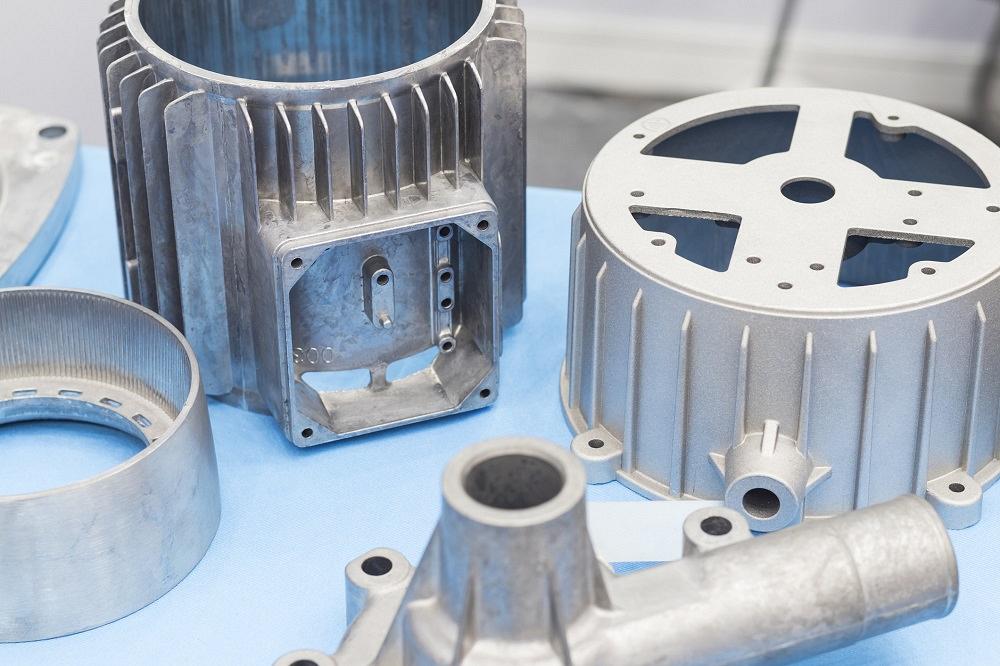Some Known Facts About Alcast Company.
Table of ContentsIndicators on Alcast Company You Need To KnowThe Best Strategy To Use For Alcast CompanySome Known Questions About Alcast Company.The 7-Minute Rule for Alcast Company6 Simple Techniques For Alcast CompanyNot known Factual Statements About Alcast Company
The refined difference exists in the chemical material. Chemical Comparison of Cast Light weight aluminum Alloys Silicon promotes castability by lowering the alloy's melting temperature and enhancing fluidity during spreading. It plays a critical duty in enabling elaborate mold and mildews to be filled properly. Additionally, silicon contributes to the alloy's stamina and put on resistance, making it beneficial in applications where sturdiness is critical, such as vehicle parts and engine components.It also improves the machinability of the alloy, making it simpler to process right into finished items. In this means, iron contributes to the overall workability of light weight aluminum alloys.
Manganese adds to the toughness of aluminum alloys and enhances workability. Magnesium is a lightweight component that gives toughness and effect resistance to light weight aluminum alloys.
The 2-Minute Rule for Alcast Company
Zinc improves the castability of light weight aluminum alloys and aids regulate the solidification process throughout casting. It enhances the alloy's stamina and hardness.

The main thermal conductivity, tensile toughness, yield toughness, and elongation vary. Select appropriate basic materials according to the performance of the target item generated. Among the above alloys, A356 has the highest thermal conductivity, and A380 and ADC12 have the most affordable. The tensile restriction is the opposite. A360 has the best return stamina and the highest elongation price.
Get This Report on Alcast Company

In precision casting, 6063 is appropriate for applications where intricate geometries and top quality surface finishes are critical. Instances include telecommunication units, where the alloy's premium formability permits sleek and visually pleasing layouts while keeping structural view publisher site integrity. Similarly, in the Lighting Solutions market, precision-cast 6063 components develop elegant and efficient lights components that need complex shapes and great thermal efficiency.
The A360 displays exceptional prolongation, making it perfect for facility and thin-walled elements. In precision spreading applications, A360 is appropriate for sectors such as Consumer Electronic Devices, Telecommunication, and Power Tools.
The Ultimate Guide To Alcast Company
Its unique residential properties make A360 a valuable choice for precision spreading in these sectors, improving product sturdiness and high quality. Light weight aluminum alloy 380, or A380, is a commonly used casting alloy with several distinct qualities. It offers superb castability, making it a suitable option for precision spreading. A380 exhibits great fluidness when molten, guaranteeing complex and detailed molds are precisely duplicated.
In precision spreading, light weight aluminum 413 shines in the Customer Electronic Devices and Power Devices sectors. This alloy's premium rust resistance makes it an outstanding selection for outdoor applications, guaranteeing lasting, long lasting products in the discussed sectors.
The smart Trick of Alcast Company That Nobody is Talking About
The aluminum alloy you pick will considerably impact both the spreading process and the properties of the last item. Since of this, you have to make your choice carefully and take an informed technique.
Identifying the most suitable light weight aluminum alloy for your application will certainly indicate evaluating a wide array of features. The first group addresses alloy qualities that affect the manufacturing procedure.
Some Ideas on Alcast Company You Should Know
The alloy you choose for die casting straight influences numerous facets of the spreading process, like exactly how simple the alloy is to collaborate with and if it is vulnerable to casting issues. Warm splitting, likewise known as solidification cracking, is a normal die spreading issue for light weight aluminum alloys that can cause inner or surface-level splits or fractures.
Particular aluminum alloys are much more at risk to warm breaking than others, and your choice should consider this. It can harm both the actors and the die, so you ought to look for alloys with high anti-soldering properties.
Corrosion resistance, which is already a remarkable characteristic of aluminum, can differ significantly from alloy to alloy and is an essential characteristic to think about depending on the ecological conditions your item will be subjected to (Foundry). Put on resistance is an additional home commonly looked for in light weight aluminum products and can distinguish some alloys